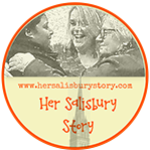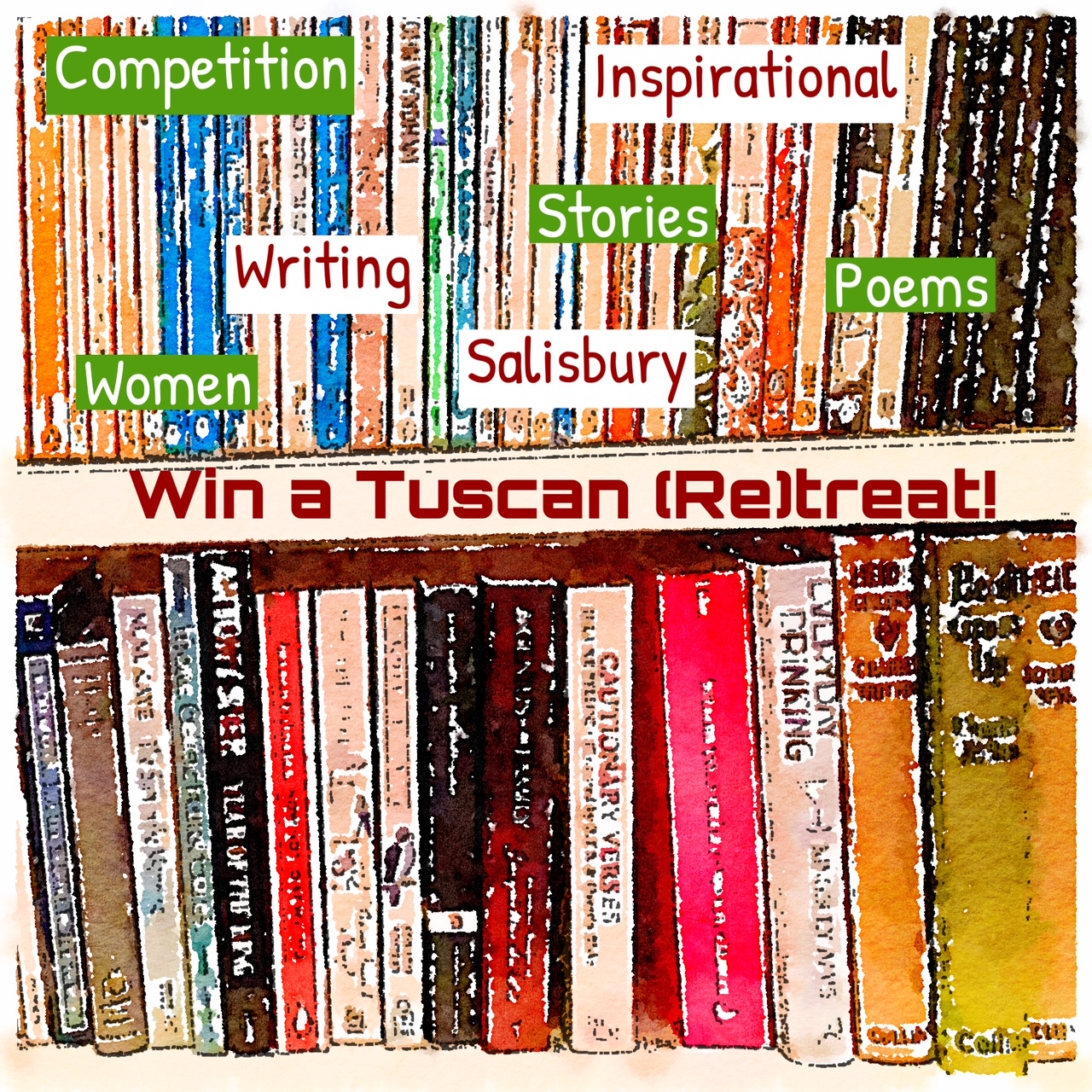
Back in 2021 we ran a competition to win a week in a Tuscan artists’ retreat!
We invited women aged between 20 and 35 living in the Salisbury area to enter our writing competition.
Those who entered wrote a story or poem inspired by one of the historic or contemporary women featured on this website or another Salisbury woman who has inspired them.
The following young women won the fabulous prize of a week’s stay at author Cornelia Funke’s artist retreat in Volterra Tuscany generously donated by Cornelia herself.
Bronwen Steele
Clementine (Pippa) Ebel
Allegra Marland
The prize included return flights to Italy, transfers from the airport to the retreat and accommodation.
You can read their stories here
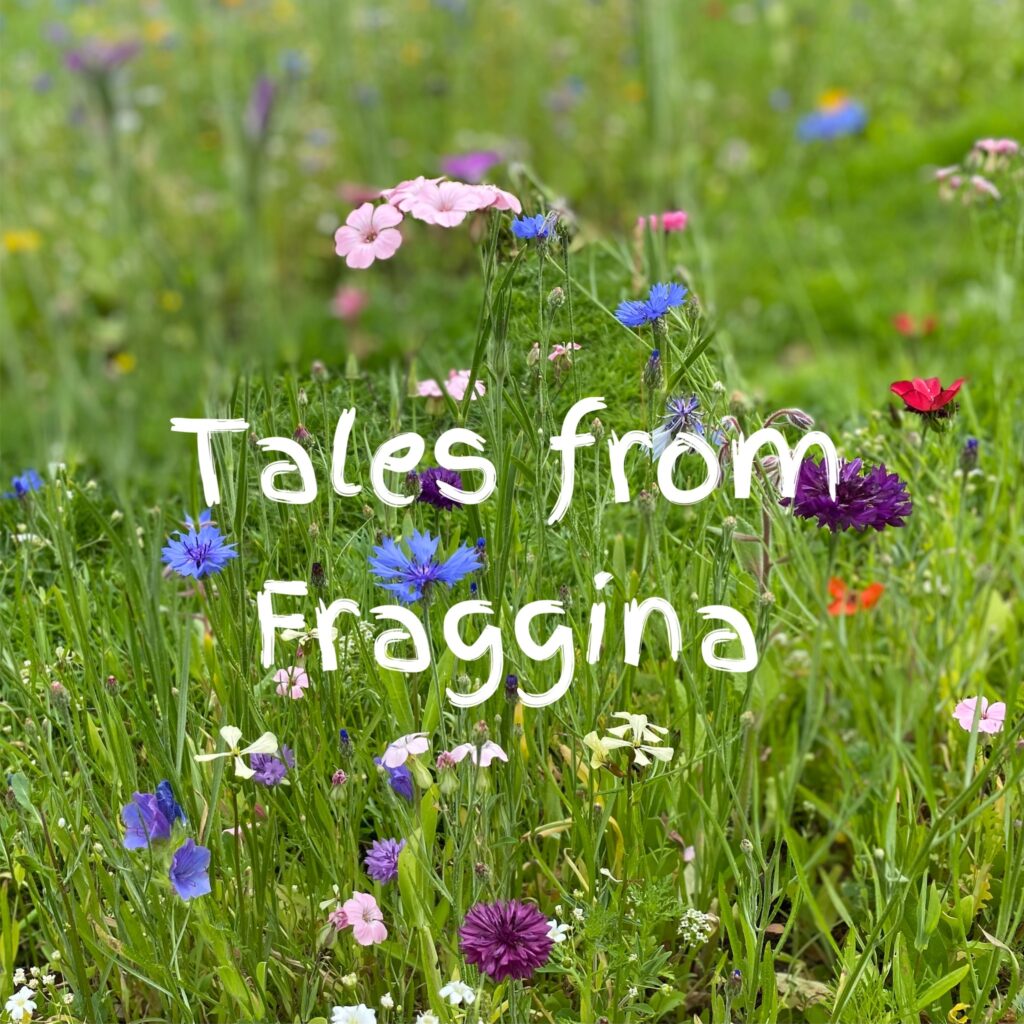
All of our winners have now visited Cornelia’s retreat in Tuscany and come back inspired an invigorated!
We asked each of them to write about their experiences for the HSS website and I think you will agree that they all had a truly magical time.
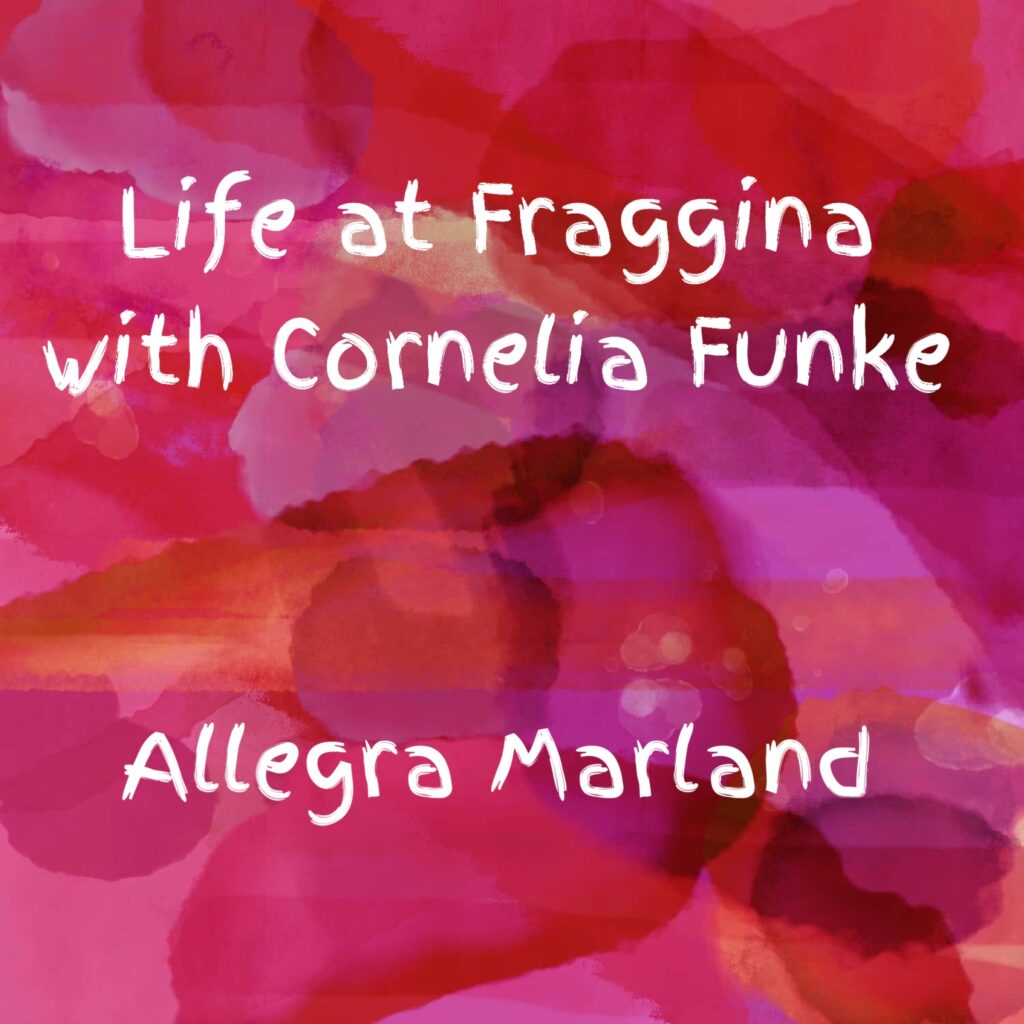
Let’s start with the things I can describe about Fraggina. Cornelia’s house sits at the bottom of a long, bumpy, beautiful drive downhill. Four lovely apartments for the artists or writers staying at that time are tucked under Cornelia’s own home. My little domain had a mouse that kept me company. A very brave and confident Italian mouse, who even chewed through my earplugs that I had purchased to block him out. After losing my battle with him I moved to the childrens bedroom where I slept better than I ever had before, underneath walls painted by different illustrators that had come to stay.
Each day we would sit at our own tables under the vines, or at the communal table in the courtyard. I wrote and wrote, made coffee, ate lunch and wrote some more. I also walked. You can take two routes up to the town. One up the road, steep and simple. The other rambling through fields and hidden pathways. Naturally I took the ‘road less traveled by’. Wild flowers spread out everywhere you look. I picked handfuls of sweet peas to have next to me whilst I wrote, but I let the mini, magical wild orchids be.
Each evening someone would cook and we’d sit out talking with some of Cornelia’s delicious wine from the unbeatable vinoteca in Volterra. Conversation drifted from past loves, to current affairs, to future dreams, all illuminated by Cornelia’s incredible ability to describe, articulate and evoke fantasy.
It is, however, the things I cannot describe about Fraggina that will stay with me forever. The way the light hits the house in the early evening. The whisper of the breeze through the olive groves. The full moon showing off its brightest glow. The peace of looking out at the dreamlike view. Cornelia’s endlessly entertaining mind. Her open hearted generosity. The gift of time and space that stretches out in front of you each day, beckoning you to write, or draw, or dream or just … be.
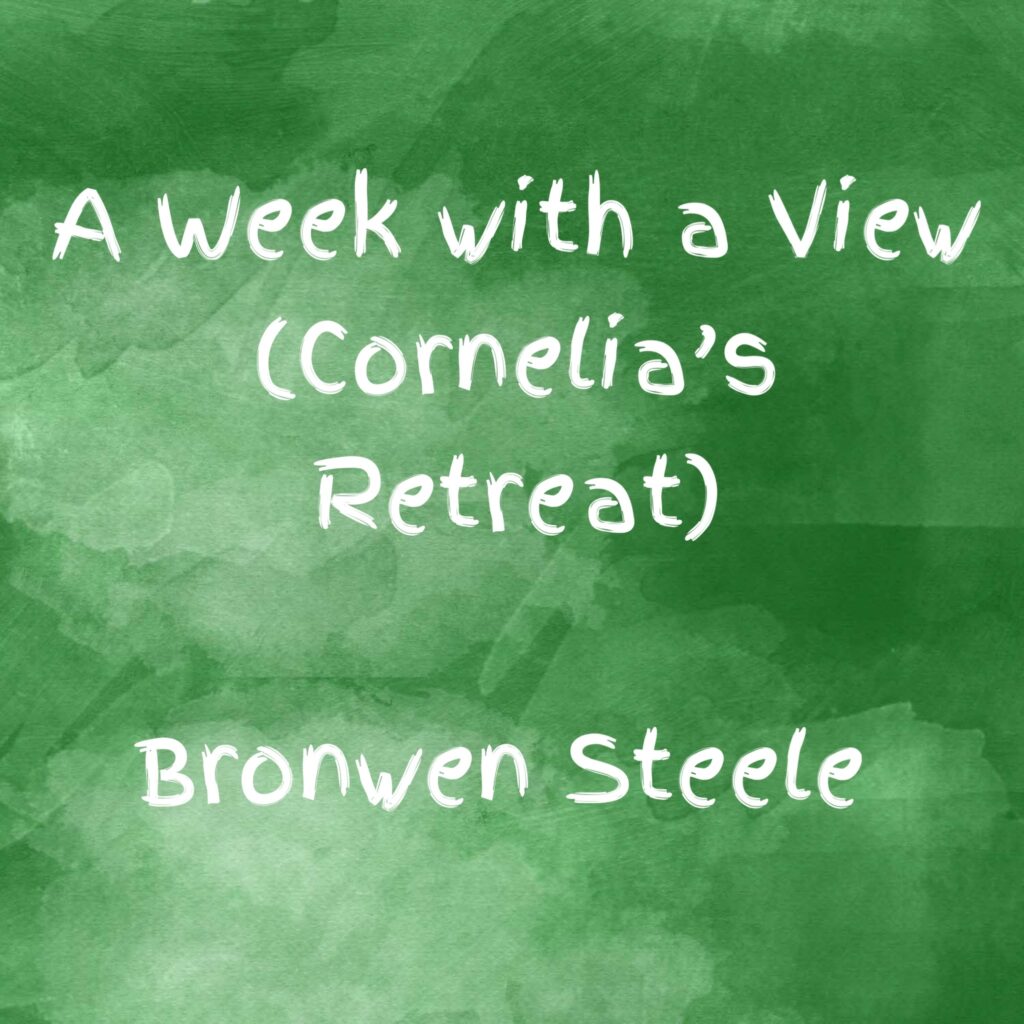
On our first afternoon in Tuscany, a thunderstorm moves in to welcome us. Cornelia’s home sits high above the landscape below – a landscape formed of smaller rolling hills which, I later learn, trap the light in pockets of gold as the sun goes down. In the far distance, other high peaks rise up. I watch them, misty and blue, in an ever-changing spectacle as the thunderstorm moves across them. Occasionally, forked white lightning strikes.
The apartment I will be staying in is called ‘Cielo’, which means ‘Sky’. Painted stars are scattered across its walls and it’s sparsely but lovingly decorated – a big wooden wardrobe and a big wooden desk, a shelf well-stocked with diverse and interesting books, a naturally-dyed tablecloth patterned with sunflowers, the colourful sculpture of a tiny man who sits, dangling his legs, atop a stack of books by the door – and small ceramic dragons. This feels fitting, given the story which helped me get here. Both the space and beauty are good for my imagination.
Staying here is like stepping into another world, one of fantasy and fairy tale. The world drops away before me only metres from my own front door. Huge black bees with iridescent blue wings visit the sweet-smelling, yellow flowers currently framing the view. I wouldn’t be entirely surprised to learn that they had flown from the pages of a book. I haven’t come expecting to write much. I arrive feeling tired and dry. I look at the hills a lot. I read a children’s adventure story. I think. Some important things about myself come back to my attention. I’m not naturally someone who arrives ready to go and eager to explore. I’m slower, more tentative; I experience the world by soaking it in rather than diving in head-first. I don’t always talk much but I am good at leaving space. I notice that these things can be disadvantages but that they can also be gifts. I am grateful for a more adventurous companion who has already mapped out the town by the time I’m ready to venture in.
I start to write a little. My characters, Phil and Mariposa, will be going on an adventure together this week. ‘Mariposa’ is Spanish for ‘butterfly’. The whole time we are here, a butterfly with incredible, veined, stained-glass wings flits about the place. I’m excited about my story idea. Everyone else seems excited by it too. During the week, I eat one of the best pastries I’ve ever had in my life and Cornelia arranges for us to do a natural-dyeing workshop. It feels like performing alchemy with silk and flowers.
I hit a wall with my story. It’s frustratingly familiar. It’s the same wall which has stopped me writing other stories. It’s more than just sudden boredom, it’s a visceral feeling of disgust. Cornelia talks about stories as if they are alive, waiting to be discovered and stubborn about the direction they want to go in. Hitting this wall feels like watching my story die in my hands.
Cornelia says that the wall probably means I am not asking interesting enough questions of my characters or my story, that I’m not taking them seriously enough and I’m keeping things too shallow. Why is Phil blind? How does he feel about it? How does Mariposa treat the servants? Is she kind or cruel? Cornelia talks about finding the thread of a story, the thing which runs the whole way through, and how she was inspired to write The Thief Lord – which is, incidentally, a favourite of mine. She says that she wanted to write a story about the way children think about being grown-ups, and grown-ups think about being children. This is the thread around which the book was built. She’s passionate about it. A light goes on in the back of my head. I need to be passionate enough about the thread for it to carry me through the story.
I am trying to write a story about a princess so beautiful that she gets whatever she wants but the things which strike a deep chord with me are grief and fear and loneliness and feeling like you’re on the outside – and hope, too. This is a tricky realisation to have because, aside from hope, I have never wanted to write stories about these things. However, they are, I realise, the themes of the short story I wrote for the competition. And they are the themes of the poetry collection I have been working on for the last few years. I know I will have to go home and think about this.
Cornelia challenges us on whether or not we really want to be writers. She says she is a writer because words are the one thing she has infinite patience for. I worry that I do not have infinite patience for anything – but I do know that I am happy when I write. By the time I go home, I have also fallen in love with the life of a writer. A few months ago I was disappointed that I hadn’t managed to find a 9-5 office job after graduating; now, I am grateful for the unexpected journey.
Other things I am taking home with me: confidence in my ability to write something good and in my instincts as a writer, permission to let stories percolate for a while (Cornelia starts a notebook for every story she writes and says that not all of them are filled immediately, if at all), and the deep need to wrestle with the ways in which my faith and my creativity interact. Over the coming weeks, I will read Andrew Peterson’s Adorning the Dark about Christianity, beauty, and art, and get involved with a creative group at my church. The first thing I do when I get home, though, is to make my work-space more beautiful. Later, I put a story on to percolate. I grow more confident in my calling. I return to my poetry collection with fresh eyes. I give the seeds time to bear fruit.
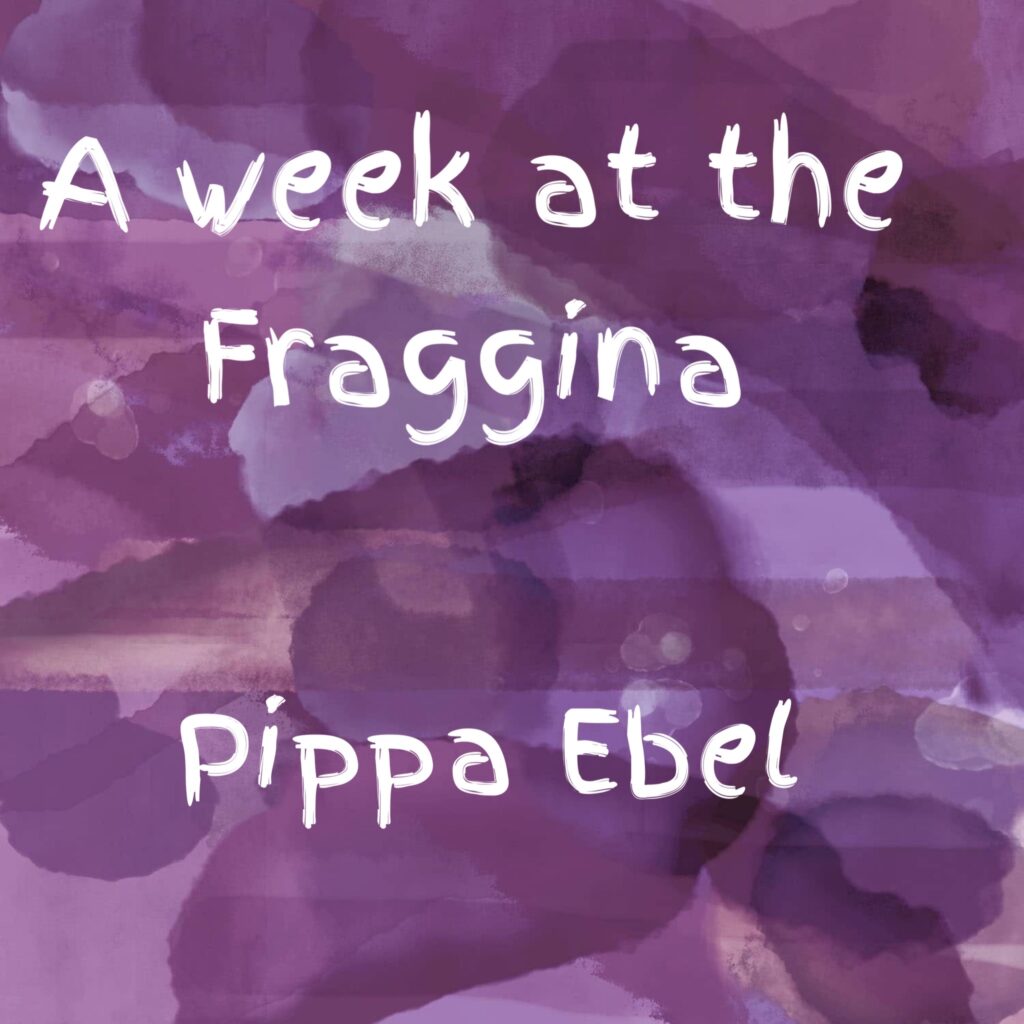
At the end of a long and winding trail lined with pine trees stands beautiful rust coloured gates, bent into the shapes of a violin and an open paged manuscript. These gates swing open to the Fraggina, a perfectly formed farmhouse built of white stone and wood. It is a place bursting with life. Acrobatic bees dance erratically in the air, and birds dart between tall, expanding trees.The Fraggina is one of those rare places in the world where time sits still, and you – as a guest – sit still with it.
I had never imagined I would spend a week nestled among Tuscan hills, in the shadow of the sleepy medieval town Volterra, with nothing to do but write. This was a gift presented to me back in 2021 when I was one of the winners of the Salisbury Story competition. I hadn’t imagined that a short story about my wonderful Grandma would carry me to Italy, but I am tremendously glad it did. I did not perhaps at the time realise quite how valuable the prize would be, which offered me the most precious opportunity of all: that of time and space. Over the course of the week, I not only worked on a collection of children’s poems based on Chinese mythological beasts, but more importantly lived alongside several brilliant and curious individuals.
Cornelia Funke – Germany’s most celebrated children’s writer – has in just a few months shaped a haven where writers, illustrators, musicians and artists come together to create. The space has a unique tranquillity that makes you feel simultaneously rested and motivated to stretch your creative faculties. I was surprised to see a collection of poems based on themes of childhood and family hatch within the pages of my notebook; some of which I have since entered for competitions and publications.
The highlight of the trip was undoubtedly the time spent talking with Cornelia, where I heard about her remarkable journey from Hamburg, to LA, to Italy. It was an incredible privilege to peer into Cornelia’s brilliant mind, but also to hear about the practical realities of the profession which has immense challenges. The week left me inspired and motivated, and I am pleased to have returned to the UK with ambitions to share more work, at Open Mics, in poetry groups and maybe even one day, in print!
I have learnt the importance of giving space to creativity. This might be an hour on Sunday morning sitting in Elizabeth Gardens, or a week in an Italian medieval citadel, both are precious minutes in which we expand, explore and discover. I hope people reading this might think about where they can carve out a few minutes each day. Minutes where the phone is off, and you simply write, or draw, or sing.
.
